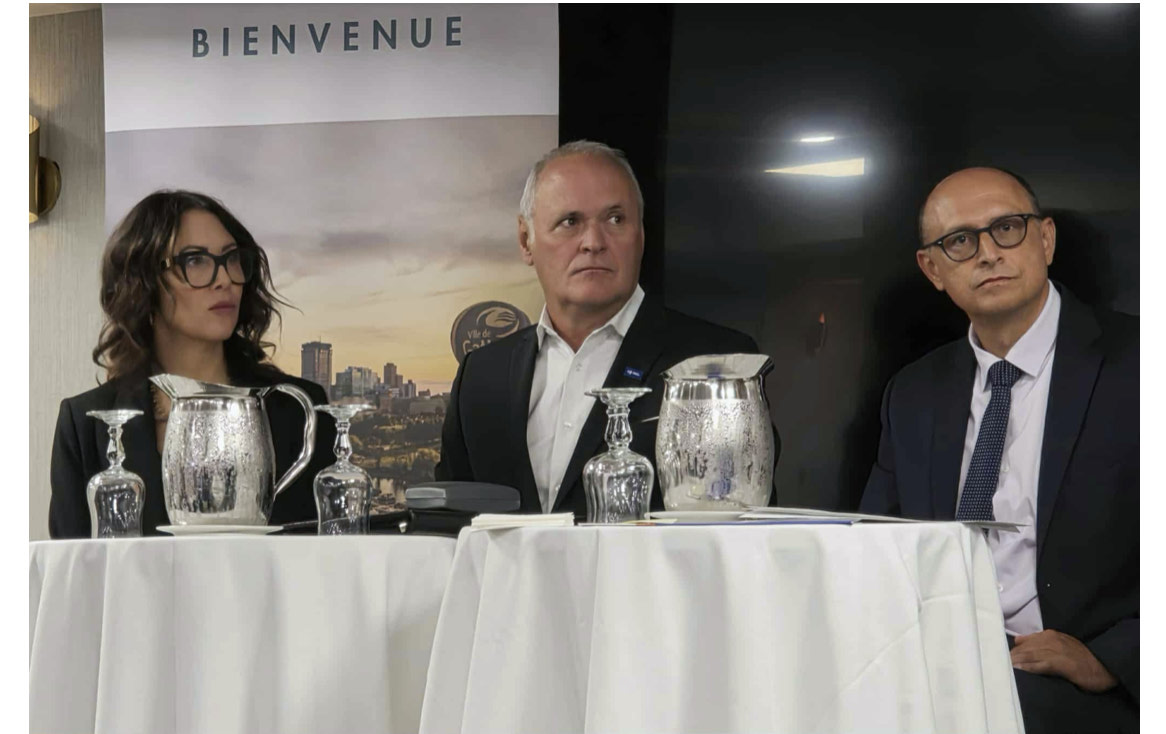Gatineau looks to cybersecurity and defence as drivers of economic future
Tashi Farmilo
At the Mayor’s Breakfast on the morning of September 12, Gatineau officials and regional leaders gathered at the Ramada Plaza Manoir du Casino to chart a course toward economic transformation through cybersecurity and national defence. With federal plans to raise defence spending to 5 per cent of GDP by 2035, a potential 150 billion dollars annually, the message was clear: Gatineau wants in.
Mayor Maude Marquis-Bissonnette framed the city’s ambition in blunt terms. “The public service is a strength, but it cannot be the only engine of our economy,” she said, warning of looming federal job cuts and calling for a bold pivot toward high-value sectors. She stressed that cybersecurity is one of Gatineau’s strongest cards, pointing to the region’s skilled workforce, proximity to Ottawa, and concentration of specialists. “We’re not building in a desert. We’re building on living strengths that already exist.”
Reda Bensouda, deputy director of Innovation at the Université du Québec en Outaouais and former head of the national cybersecurity cluster In-Sec-M, highlighted education as central to Gatineau’s role in the field. He noted that UQO is working to launch a bachelor’s degree in cybersecurity. “It’s not official yet, but we’re in the process of getting it approved,” he said. “That would be a game-changer for the region.”
Jean-Claude Des Rosiers, director of CyberQuébec and longtime entrepreneur, underscored Gatineau’s existing expertise and infrastructure. His centre works directly with companies to strengthen their cyber resilience. “There are over 2,400 cybersecurity specialists in the region and more than 90 companies involved,” he said. “The federal government is a client that understands cyber risk. That makes this region competitive.”
Michelle Robitaille, CEO of Digital Trust Canada, spoke about the importance of secure digital infrastructure for national sovereignty. Her organization, founded in Gatineau in 2020, now leads efforts to create a federated, secure system for Canada. “We’re developing infrastructure to ensure Canadian data stays in Canadian hands,” she said. “Digital trust and sovereignty are no longer abstract. They’re now central to innovation, security, and competitiveness.”
Throughout the morning, speakers stressed that cybersecurity must be part of a larger defence strategy that includes space-based communications, artificial intelligence, and notably, drones. They described Gatineau as well-positioned to support innovation in autonomous systems and secure drone technologies, both for civil and defence applications.
As the session closed, Marquis-Bissonnette returned to the stakes at hand. “There’s already money on the table, and if we want to build a future here, with satellites, secure infrastructure, drones, and yes, cybersecurity, then Gatineau needs to move now,” she said. “If we don’t, someone else will.”

